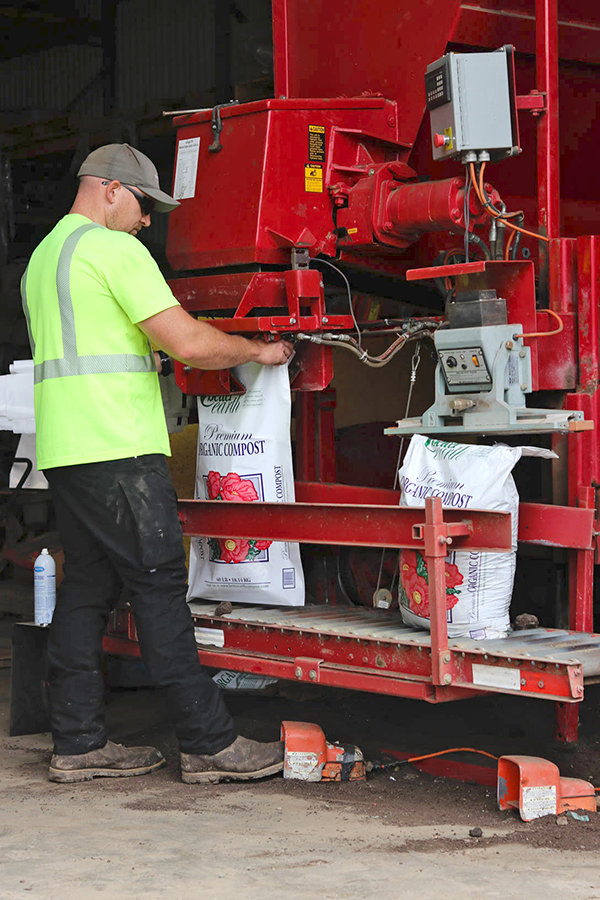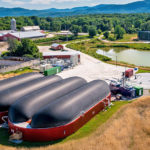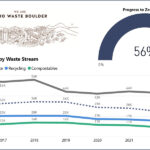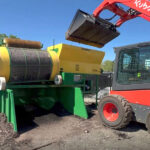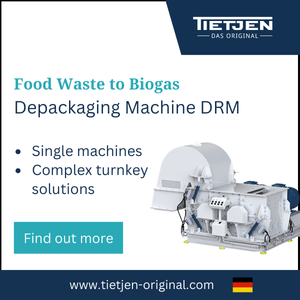Nora Goldstein
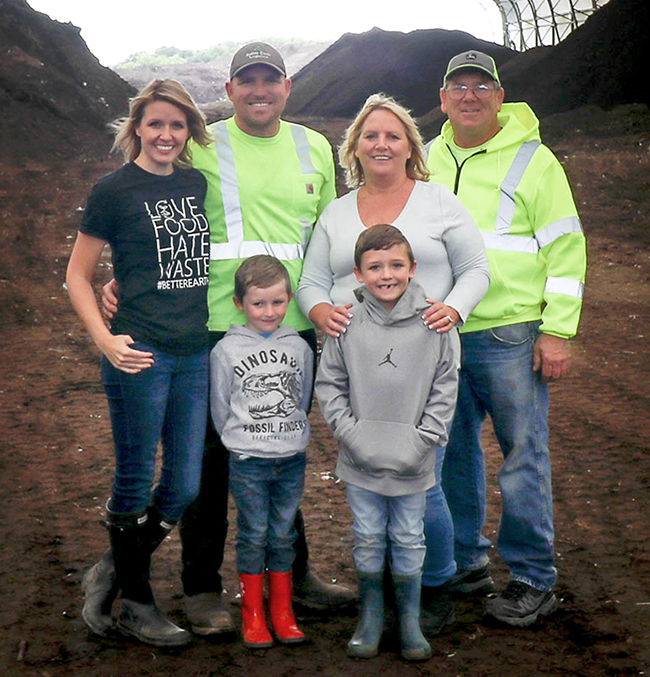
Two generations are involved in the family enterprises. Top row (from left to right): Yvonne and Luke Rosenbohm, and June and Paul Rosenbohm, with the youngest generation.
Better Earth Logistics in Peoria, Illinois, was founded by Yvonne and Luke Rosenbohm in 2015 to fill a niche for a 24/7 organic waste hauling service. Luke’s parents, Paul and June Rosenbohm, operate LHF Compost, Inc. in Peoria, dba Better Earth Compost, which is permitted to accept source separated food waste streams. Among the feedstocks accepted is pumpkin waste from a food processor. To assist his parents while he was a pilot in the Air National Guard, Luke Rosenbohm rented a roll-off truck seasonally to collect the food waste and bring it to Better Earth Compost.
“Seeing the potential with a roll-off unit after the first season, we decided to buy a roll-off tractor trailer unit that could be used year round but didn’t have the same price tag as a roll-off truck,” says Yvonne Rosenbohm. That step facilitated launching the collection service full-time. “As we grew and needed more versatility, we decided to buy a roll-off truck and sell the trailer. We kept the truck and placed a 6-cubic yard Perkins satellite box on it to utilize in weekly service.” The Perkins unit has a cart tipper attached on the side.
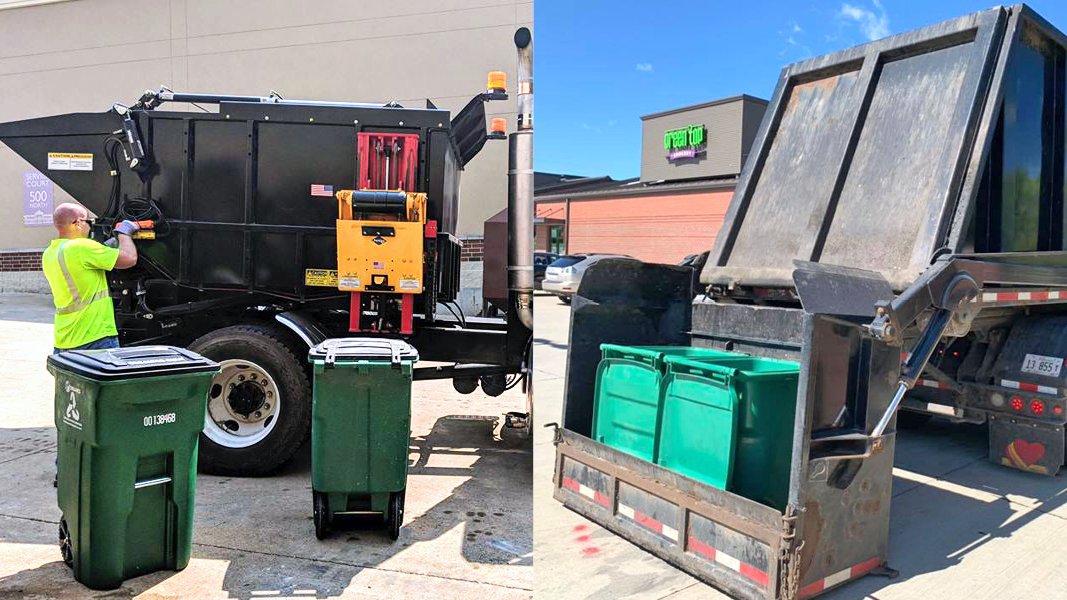
Better Earth Logistics has 2 collection vehicles — a Perkins Manufacturing satellite box mounted on a trailer (left) and a roll-off box truck (right). Photos courtesy of Better Earth Logistics
Better Earth Compost processes 55,000 to 60,000 cy/year of feedstocks. Yard trimmings comprise the bulk of the material; food waste accounts for about 8,000 to 10,000 cy/year. All types of food waste and food-soiled paper are accepted, and the facility is permitted to receive BPI-certified compostable bioplastic products — plates, cups, food scrap bags, etc. Better Earth Logistics is a distributor for several compostable product manufacturers, including NaturTec’s Natur-Bag compostable liners, and foodservice ware from Eco-Products and EcoSafe. “Our theory is if the composters are selling the compostable products, then they are happy with them as part of their composting process,” explains Rosenbohm.
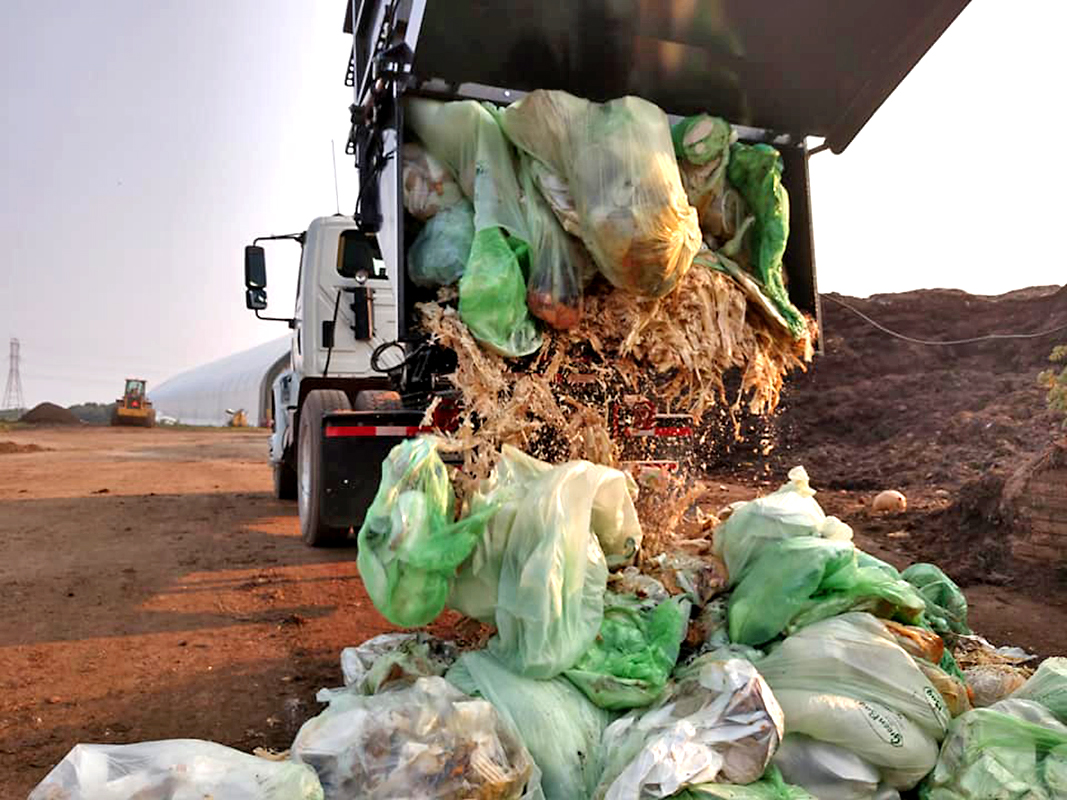
Food waste, collected in BPI certified compostable Natur-Bag liners, is unloaded at Better Earth Composting in Peoria, IL.
The company uses 64- and 96-gallon wheeled carts for its commercial organics collection, in part to help control contamination. “We can inspect the carts for contamination, especially when we know that the client is going through some staff changes,” he says. “With compactors, you don’t see contamination until you unload at the facility.” Several years ago, Better Earth Logistics acquired a box for the roll-off truck — along with an organics collection route in Bloomington — about 40 miles from Peoria. A cart tipper attached to box can fit three 64-gallon carts or two 96-gallon carts at a time, which are then lifted and emptied into the roll-off box.
Residential Drop-Off
In 2019, Yvonne Rosenbohm wanted to gauge interest in residential food scraps drop-off collection so joined a friend who had a booth at the Peoria Riverfront Market. “The first week, I started to talk to people about composting, and found that many people didn’t understand what it involved,” she explains. “We were given permission to set up a table the next week and I started handing out compostable bags, telling people to take it home, fill it with their food scraps, and bring it back the next week. We offered the service for free, mostly to educate people. Enough people participated to fill up our 96-gallon cart every week. Compostable cups from one of our customers who sold drinks at the market also were collected, which enabled us to educate people about the cups and straws being composted. It also was a good opportunity to explain that many of the farmers with stands at the market use Better Earth Compost, and that their food scraps would be composted. So they were helping close the loop!”
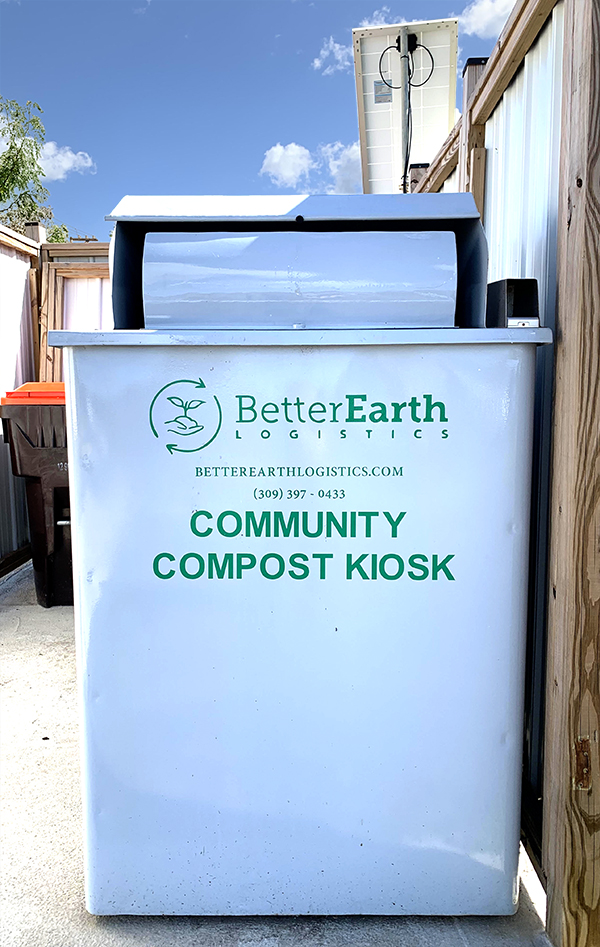
Food scraps drop-off kiosk located at Sous Chef in downtown Peoria. Households subscribe to the drop-off service.
Because the Riverfront Market is seasonal, the Rosenbohms began exploring options to collect household food waste year round. It landed on the idea of a “Community Compost Kiosk,” a subscription drop-off service with locations in places that people frequent, such as a grocery store. The first kiosk “opened” in October 2019 in the parking lot outside Sous Chef, a specialty grocery store in downtown Peoria that features products from local farmers and vendors (fresh vegetables, meats, baked goods) and prepared meals. On its website, Better Earth Logistics sells subscriptions to use the kiosk. A one-year subscription is $150, or $47 for 3-months. Upon subscribing, a 5-gallon bucket and compostable bags are dropped off at the customer’s home, along with a key card to access the kiosk. Subscriptions also are sold at Sous Chef, which diverts its organics through Better Earth Logistics.
A 96-gallon cart is inside the kiosk. The card reader is solar powered. The key card unlocks the door of the collection bin. Bags of food scraps are dropped into the 96-gallon cart. “We kicked the first location off with 10 subscribers, and now have 40,” says Luke Rosenbohm. “As the number increases, we will service the kiosk more frequently. Right now, the cart is emptied twice a week, and we are planning to add a third day.” Two more kiosks have been built and are being installed in the towns of Washington and Peoria Heights.
Adds Yvonne Rosenbohm: “We’ve found that some people only need a composting service sporadically, so getting a subscription is more than they want. For example, households compost their vegetative food scraps at home, but need someplace to take their meat, fish and dairy waste. We are going to tweak our kiosk service as we go along to better accommodate a variety of customers.”
Composting Update
LHF Compost, Inc., dba Better Earth Compost, originally started as an on-farm operation, composting manure from the family’s dairy farm. The on-farm composting permit prohibited sale of compost off-site, as well as limited the ability to take organic waste streams from other generators. Paul Rosenbohm applied for and received a full-scale composting permit in 2003, and eventually the facility began taking food waste streams.
Materials are composted in windrows. A fabric structure was erected in 2011 to facilitate year-round composting. It also is used to store finished compost. Compostable products collected with the food waste disintegrate during the 3- to 4-month active composting phase, where temperatures remain in the 150°F range. “As long as the conditions are optimal, the products break down,” notes Luke Rosenbohm. “This summer was very dry so we needed to apply moisture to the windrows. The bag liners won’t break down when the piles are dry.” Screened overs with visible compostable products are recycled back into the process. “We lay down a base of overs from the screener that are still warm, and add freshly mixed feedstocks on top,” he adds.
Compost is sold in bulk and bags. The bags are filled using a Rotochopper Go-Bagger portable system. A growing market for Better Earth Compost is engineered soils made with sand, topsoil and compost.




